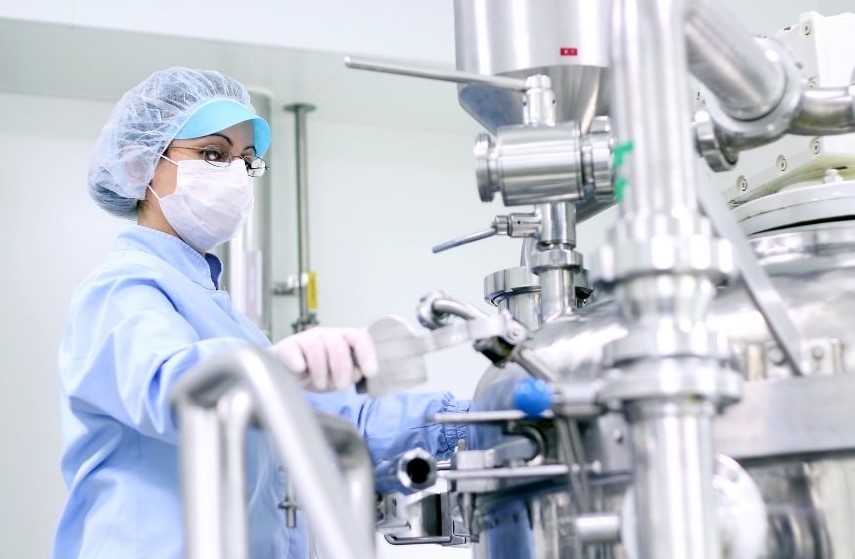Advanced manufacturing techniques at U.S. pharmaceutical companies might lead to reshoring more drug-making at home…or it might not members of the Food and Drug Administration told the House Committee on Energy and Commerce on Thursday.
Rep. Buddy Carter (R-GA-1) asked two FDA panelists if advanced manufacturing “has the potential to increase the production of medicine in this country. It is important for us to be competitive. Innovation is extremely important to repatriate manufacturing. It would help us increase the resilience of our supply chains,” he said, adding that critical medicine shortages were detrimental to our national security.
“I support advanced manufacturing and to the extent that it helps bring manufacturing in the United States…it’s certainly something we would support,” was all Peter Marks, Director of the Center for Biologics Evaluation and Research at the FDA said on the matter. He added that generic drugs would be moved into advanced manufacturing facilities, where possible, but did not say that would lead to any faster approval of drugs.
Carter sponsored the Manufacturing API, Drugs, and Excipients (MADE) in America Act (H.R. 6930) in 2020 but it is stuck at the Committee level.
On Friday, the passage of the House COMPETES Act included $100 million to increase the domestic drug manufacturing base through the establishment of the National Centers of Excellence in Advanced and Continuous Manufacturing. That portion of the bill was sponsored by Energy and Commerce Committee Chairman Frank Pallone, Jr. (D-NJ-6).
The money will “increase our ability to quickly produce prescription drugs. It also supports efforts to replenish and modernize strategic stockpiles of medical supplies to ensure we’re prepared for future public health emergencies,” Pallone said in a statement released today. “We are ensuring that America can outcompete the rest of the world by ending our reliance on other nations for the manufacturing of critical goods.”
Back at the hearing, titled Hearing on “FDA User Fee Reauthorization: Ensuring Safe and Effective Drugs and Biologics”, Rep. Carter brought up advanced pharmaceutical inputs and America’s reliance on world markets for most of them.
“APIs are important,” he said. “To what degree do the FDA officers working on drug shortages coordinate internally and do they work with manufacturers on shortfalls so we can avoid them?”
Patrizia Cavazzoni, Director at the Center for Drug Evaluation and Research at the FDA said there is “extensive coordination in the FDA across many groups and extensive communication with the manufacturers” – suggesting the FDA is on top of this issue.
Chairwoman Anna Eshoo (D-CA-18) said the COMPETES Act has language in it saying manufacturers will be required to tell the FDA where all their APIs are coming from in order to give the government a better sense of the supply chain.
Friday’s hearing was about FDA funding through Prescription Drug User Fee Authorization (PDUFA), Generic Drug User Fee Authorization (GDUFA), and Biosimilar User Fee Authorization (BsUFA) Acts. These laws fund important operations at the FDA. The GDUFA plays a key role in how generic drugs are approved by the FDA. It is often considered the “gold standard” for the generic drug process worldwide.
Rep. Kathy Castor (D-FL-1) brought up an issue FDA watchers know well – tainted goods sourced from abroad. It’s not always medication.
“FDA enforcement is a critical tool, to issue warning letters and begin legal proceedings when appropriate on things like food products, vaccines, and medications that can get the product removed from the shelves if it is necessary to protect health and safety. But the agency lacks the authority to do this for many drugs and must rely on the manufacturer to recall drug products if they have been mislabeled or adulterated,” Castor said. “This has become a high-profile topic.”
She mentioned tainted hand sanitizer sold here during the height of the SARS-2 pandemic. FDA recalls for hand sanitizer from Mexico grew. The hand sanitizer was contaminated with methanol, a poison that led to blindness and other severe injuries.
This has been an issue with generic drugs as well.
“What advantages would the agency experience if it had mandatory recall authority?” Castor asked.
Cavazzoni said the FDA’s inability to mandate a recall on bad drugs “is a real gap for us.”
“We have to work with the manufacturers, and some are very responsive, and some are not,” Cavazzoni said. “This inability to mandate recalls is an outlier when you look at the powers of other regulatory agencies throughout the world. The manufacturer can decide not to recall a product…or it can take weeks for us to persuade them,” she noted. “By then, the public has already been exposed to a harmful if not a lethal contaminate in drugs and other products.”
Although this was not part of the debate on Thursday, manufacturing products in the U.S. would give the FDA more control and surely more visibility than if they had to rely on manufacturers offshore.













